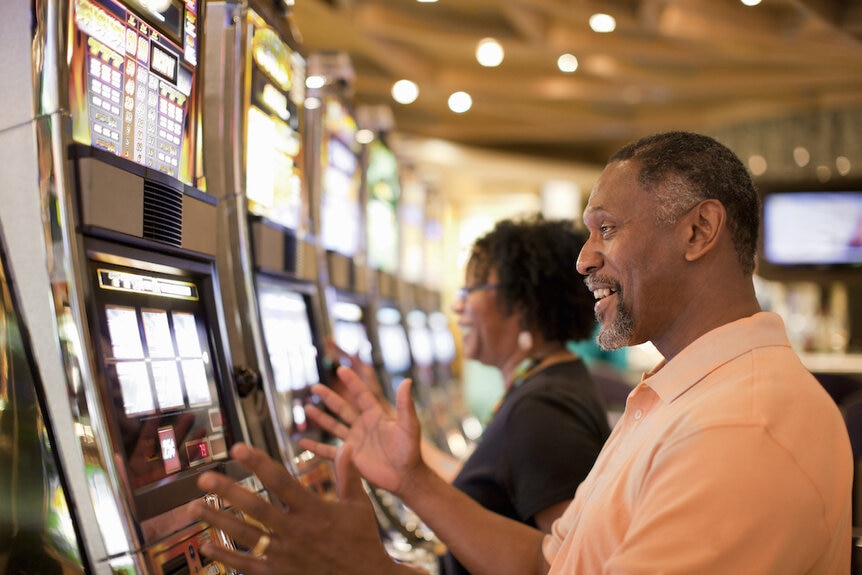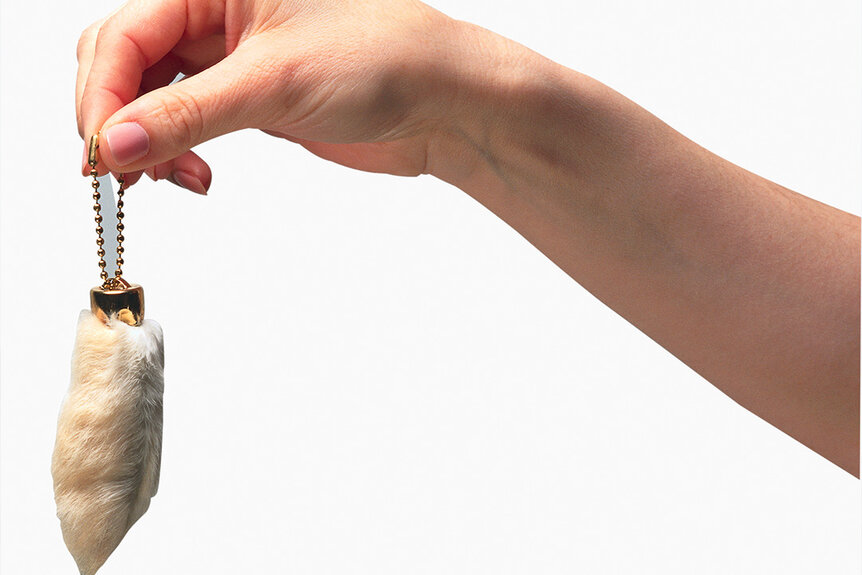Create a free profile to get unlimited access to exclusive videos, sweepstakes, and more!
The science behind 'Poker Face's lucky (or unlucky) Charlie Cale
You can bluff the other players, but can you really bluff yourself?

Rian Johnson reinvigorated the classic mystery movie through the charms of Ana de Armas and Daniel Craig (not to mention the rest of the absolutely stacked cast) in his 2019 film Knives Out. He returned to the deep Benoit Blanc well in last year’s Glass Onion, pairing Blanc with another downtrodden everywoman (Janelle Monáe) at odds with the villainous wealthy. Smartly recognizing that we will gladly shell out for as many mysteries as he wants to give us, Johnson recently moved from the silver screen to the living room with the weekly mystery procedural Poker Face (all of which you can stream, right now, on Peacock).
Poker Face works incredibly well thanks to combination of Johnson’s narrative stylings and Natasha Lyonne’s knockout performance as Charlie Cale, a casino worker on the run from an aggrieved casino boss. During her cross-country escape, Charlie becomes involved in a series of bizarre murders, which she helps to solve using her uncanny ability to know when a person is lying.
RELATED: Rian Johnson & 'Poker Face' showrunners unpack that twisty season finale, tease what comes next
It’s a talent which gets Charlie into as many scrapes as it gets her out of. Whether being a human lie detector makes her lucky or unlucky is a matter of perspective. Given what she gets up to, it’s hard to argue otherwise, but that requires that luck, both good and bad, be a thing which actually exists? So, is it?
YOU’RE UNLUCKY… OR YOU’RE BAD AT MATH
Whether we consider ourselves lucky or unlucky depends largely on specific instances when things either went our way or didn’t. Those instances, stacked up over a lifetime, can begin to feel like the scales are tilted one way or another. There’s no denying that those experiences, and the feelings they generate, are very real, but they probably aren’t the result of some blessing or curse which has latched onto you. Instead, the perception of good or bad luck sprouts from a fundamental misunderstanding about probabilities. To the thought experiment lab!
Imagine you put a dollar into a slot machine, pull the lever, and win 10 dollars. You pull the lever again and multiply your money again, now you have 100 dollars. You’re feeling lucky, so you pull the lever again and you win for a third time. Suddenly, the surety you felt only a single spin ago evaporates. Winning once is bound to happen eventually, winning twice is a happy coincidence, but winning three times feels too improbable.
Different slot machines have different probabilities of paying out and those probabilities vary depending on the amount, with small payouts being way more likely than a jackpot. For ease of math, let’s say that there is a 1 in 20 chance of getting a payout of 10 times your bet. Hitting that payout three times in a row has a probability of 1 in 8,000 and that’s enough to set off alarm bells in your head. Your brain may not know the precise numbers but it knows that hitting four times in a row is increasingly improbable (the odds are 1 in 160,000).
The fact is that your brain is right, but it’s also wrong. The likelihood of winning four in a row is so vanishingly small as to be seemingly impossible, but it isn’t. You only think it is because you’re doing what humans have done since before recorded history: putting yourself in the center of the story. It is unlikely that you would get four wins in a row, but is less unlikely that someone else would get four wins in a row?
Think of all the people in all of the casinos on just the Las Vegas strip. In 2019, there were an estimated 42 million people who visited the city and, according to statistical data, roughly 7% are there primarily to gamble. Even if we only account for that 7%, that gives us just shy of 3 million people. That’s 8,000 dedicated gamblers every single day. Suddenly, hitting three in a row is guaranteed to happen once per day, on average. And hitting four times in a row should happen roughly every three weeks. The odds that someone, somewhere, will have a winning streak becomes a mathematical surety. It has to happen to someone, and it might as well be you. It isn’t luck, it’s just math.
WHAT ABOUT LUCKY PEOPLE?
The math has to turn its favor toward someone else sooner than later, so how can we explain people who purport to be lucky all of the time?
There is some evidence that believing you are lucky actually makes you more lucky, from a certain point of view, and that the opposite is also true. A 2010 study asked participants to perform various activities including golfing, motor dexterity exercises, memory tests, and anagram games. In the golfing experiment, some of the participants were told that they were playing with a lucky ball while others were given the same ball everyone else had used. Those participants who played with the “lucky” ball performed better than everyone else. Likewise, in the other experiments, some participants were allowed to lean on some superstition, like a lucky charm they brought from home, while the others were not. Those participants who were allowed a superstition had better performance than the others, just like the golfers with the “lucky” ball. On the surface, it appears as if lucky charms and superstition can actually be lucky, all things being equal.
Scientists offer an alternate explanation. They suggest that superstitions create a difference in perceived ability. If you believe that a lucky rabbit’s foot is the difference between success and failure, than performing without it makes a person feel more likely to fail. Having their superstitions makes people more confident that they will succeed and that, in turn, makes them more likely to succeed. Additionally, individuals who utilized one superstition or another were observed to be more tenacious in their attempts to solve a problem, which also made them more likely to succeed.
The real trick is believing you will succeed and having the persistence to see a project through. The evidence suggests that superstition and lucky charms are one way people can facilitate that mindset from the jump. From a certain perspective, you can quite literally make your own luck.
That might mean that whatever happens to Charlie, she has only herself to blame. Catch the complete first season of Poker Face, streaming now on Peacock. When it comes time for Season 2, we wish Charlie all the luck in the world.




























